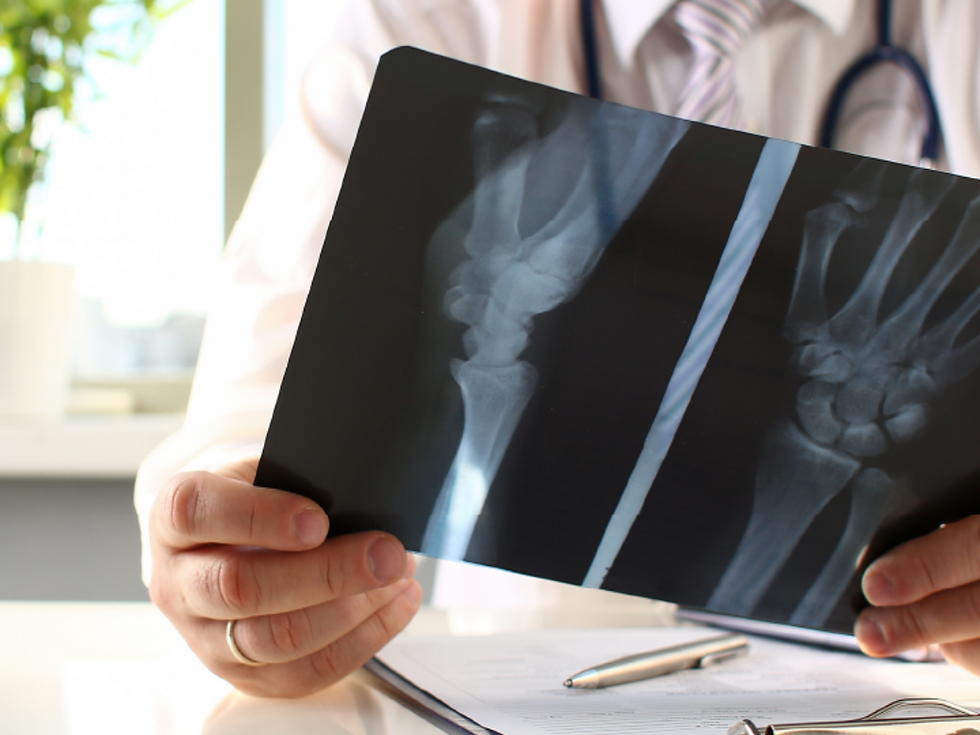The Most Common Reasons People Visit Urgent Care—and How to Prevent Them
- NDUC

- Apr 6, 2025
- 4 min read
Urgent care centers have become a crucial part of modern healthcare, offering convenient, affordable, and accessible care for non-life-threatening conditions. At Next Door Urgent Care in South Euclid, we treat a wide range of illnesses and injuries—but some show up more often than others.
Whether you're trying to avoid unnecessary trips to urgent care or simply want to be more proactive about your health, this guide outlines the most common reasons patients walk through our doors—and how you can reduce your risk.

1. Cold and Flu Symptoms
Why people visit: Seasonal viruses like the common cold and influenza bring in thousands of patients each year. Symptoms include congestion, cough, sore throat, chills, body aches, and fever. While often mild, these symptoms can worsen quickly—especially in young children, older adults, or those with underlying conditions.
How to prevent it:
Get vaccinated: Annual flu shots significantly reduce your risk of severe illness.
Boost your immune system: A diet rich in fruits, vegetables, and adequate sleep goes a long way.
Practice good hygiene: Wash your hands frequently and sanitize shared surfaces.
Avoid close contact: If someone is visibly sick, steer clear and encourage them to rest at home.
💡 Tip: If you're already experiencing symptoms, stay home, hydrate, and monitor for worsening signs—then visit urgent care if needed.
2. Sprains, Strains, and Minor Injuries
Why people visit: From slipping on icy sidewalks to sports-related mishaps, injuries like sprained ankles, pulled muscles, and minor falls are everyday reasons for urgent care visits. These can range from mild discomfort to more serious ligament damage.
How to prevent it:
Warm up before exercise: Stretch and prepare your muscles properly.
Stay aware of surroundings: Wet leaves, ice, or cluttered walkways are common trip hazards.
Use proper footwear: Supportive shoes reduce the chance of slips and falls.
Lift carefully: Use your legs and not your back when lifting heavy items.
🏠 At home: Keep hallways clear and well-lit to minimize risk, especially for older adults.
3. Ear Infections
Why people visit: Ear pain, fullness, drainage, or muffled hearing are signs of an ear infection. Though common in children, adults can also develop infections—often following colds, sinus infections, or allergies.
How to prevent it:
Keep ears dry: Use earplugs when swimming and dry ears thoroughly after showers.
Manage allergies and sinus issues: These can create fluid buildup in the ears.
Avoid inserting objects: Cotton swabs and earbuds can irritate or injure the ear canal.
👶 Parents: If your child is tugging at their ears, has a fever, or is more irritable than usual, it’s time for a checkup.
4. Urinary Tract Infections (UTIs)
Why people visit: Burning during urination, urgency, lower abdominal discomfort, or cloudy urine are telltale signs of a UTI. Women are more prone due to anatomy, but men and children can experience them too.
How to prevent it:
Hydrate regularly: Fluids help flush bacteria from the urinary tract.
Wipe properly (front to back): Especially important for preventing bacterial spread in women.
Don’t hold it in: Empty your bladder when you feel the urge.
Pee after intimacy: This helps remove bacteria that could lead to infections.
💡 Don’t ignore symptoms: Untreated UTIs can lead to more serious kidney infections.
5. Skin Infections and Rashes
Why people visit: Infected cuts, bug bites, or mysterious rashes are common complaints. From mild allergic reactions to cellulitis, urgent care can quickly assess and prescribe appropriate treatment.
How to prevent it:
Treat wounds quickly: Clean cuts and scrapes with soap and water and keep them covered.
Use insect repellent: Especially when spending time outdoors in the warmer months.
Be cautious with new products: Introduce new soaps, lotions, or detergents gradually.
Moisturize regularly: Dry, cracked skin is more vulnerable to bacteria.
🔬 Note: If a rash is spreading quickly, oozing, or accompanied by fever, seek care immediately.
6. Sore Throat and Strep Throat
Why people visit: A sore throat can be the start of a virus—or a sign of something more serious like strep. Symptoms like pain when swallowing, fever, and white patches in the throat are red flags for bacterial infections.
How to prevent it:
Avoid sharing drinks or utensils
Wash hands frequently, especially after coughing or sneezing
Stay home when sick to reduce spreading germs
Seek early testing to determine if you need antibiotics
📌 Good to know: Strep throat is highly contagious but easy to treat when caught early.
7. Minor Burns and Cuts
Why people visit: From touching a hot pan to stepping on broken glass, minor injuries at home can require more than a band-aid. If a burn blisters or a cut won’t stop bleeding, it’s time for professional care.
How to prevent it:
Use caution in the kitchen: Turn pot handles inward and use oven mitts.
Keep sharp objects stored safely: Especially if you have kids.
Wear protective gear: Gloves, shoes, and goggles are a must for home projects.
Keep a first aid kit on hand: Prompt treatment minimizes risk of infection.
🧯 Fire safety tip: Keep a small fire extinguisher accessible in high-risk areas like the kitchen or garage.
Stay Proactive with Your Health—We’re Here When You Need Us
At Next Door Urgent Care, we believe that education is one of the best forms of prevention. By understanding what brings most people through our doors and how to minimize your risk, you’re taking the first step toward a healthier lifestyle.
But no matter how careful you are, accidents and illness happen. When they do, NDUC is here for you—7 days a week, no appointment needed. Whether it's a sore throat, a sprained ankle, or something more, we’ve got you covered.
Visit us in South Euclid or learn more at nduc.org





Comments